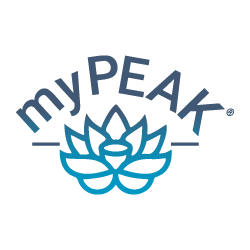The Effects of Caffeine on Sleep

To understand the effects of caffeine on sleep, it is essential to understand the crucial neurotransmitter that mediates caffeine's effect: Adenosine.
Adenosine is a neurotransmitter in the brain that sends inhibitory signals, meaning it suppresses arousal and promotes sleep. Throughout the day, adenosine builds up in the brain from when you wake up till when you go to sleep at night. At night, the accumulated adenosine exerts a pressure on your brain to sleep which is what causes the feeling of sleepiness. When you sleep, the buildup of adenosine is eliminated and you wake up fresh the next morning with minimal adenosine, at least ideally. So, while melatonin (another sleep hormone) tells your circadian clock it is nighttime, adenosine makes you feel sleepy and stay asleep.
This is also why caffeine makes you feel alert and awake. Caffeine artificially blocks receptors for adenosine in the brain giving the illusion that you are more alert and awake. This is why it is also crucial to avoid caffeine after 2 PM since it can stay in your system for 12+ hours keeping you up at night without you even realizing it. But as you stay up late, even more adenosine builds up in the brain and when you wake up, you still feel sluggish and sleepy causing you to consume more caffeine and continuing the vicious cycle. This is also a reason to avoid naps during the day because it clears built up adenosine making it harder to sleep at night.
In summary, adenosine builds up throughout the day in the brain and increases the feeling of sleepiness or fatigue. When you sleep, you remove the adenosine and start fresh and energized. The way caffeine works is by being an adenosine antagonist, meaning it prevents adenosine from binding to receptors in the brain giving you the illusion that you are no longer tired or sleepy. While this can be useful from time to time, daily use of caffeine can have a host of negative consequences. To use caffeine in a healthy way, avoid it at least 10 hours before you sleep, because with a 5 hour half life, 25% of caffeine still remains in your system 10 hours later. This disrupts sleepiness and sleep quality leading to a self perpetuating cycle in which you become dependent on caffeine to function since you are not getting fully rejuvenating sleep at night. In this blog post we will cover in depth the ideal ways to use caffeine for peak performance without the negative side effects, as well as a powerful alternative to caffeine.
Caffeine is a powerful brain and energy booster when used correctly, but also can be very detrimental chronically if misused. It can create chronic cycles of adrenal fatigue and long term exhaustion because it covers up the fact that your tank is running on empty. Therefore, using caffeine correctly is important. Here are some key tips to keep in mind:
- The best time to have caffeine is first thing in the morning! This allows it to fully leave your system before you attempt to sleep at night as even small amounts in the blood can disturb sleep.
- Never have caffeine in the last 10 hours before sleep!
- Be mindful of how much caffeine you are using, ideally it should not exceed 100-200 mg a day.
- You should never need caffeine to function, if you do, it is a sign that you need to make some changes whether it is getting more sleep or eating healthier or reducing stress
- Replace with more sleep beneficial alternatives without the side effects
Ideally, you could replace caffeine with more potent and less habit building alternatives like the amazing compound Theacrine (TeaCrine®) which has none of the negative side effects of caffeine we will discuss in another blog post (link below)!
Theacrine Blog Post: https://www.mypeaksupplements.com/blogs/the-mypeak-blog/caffeine-vs-teacrine


Leave a comment